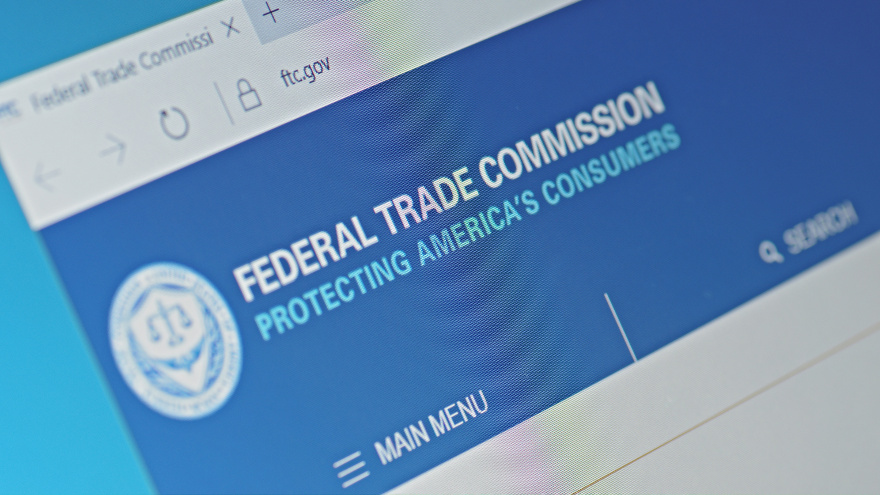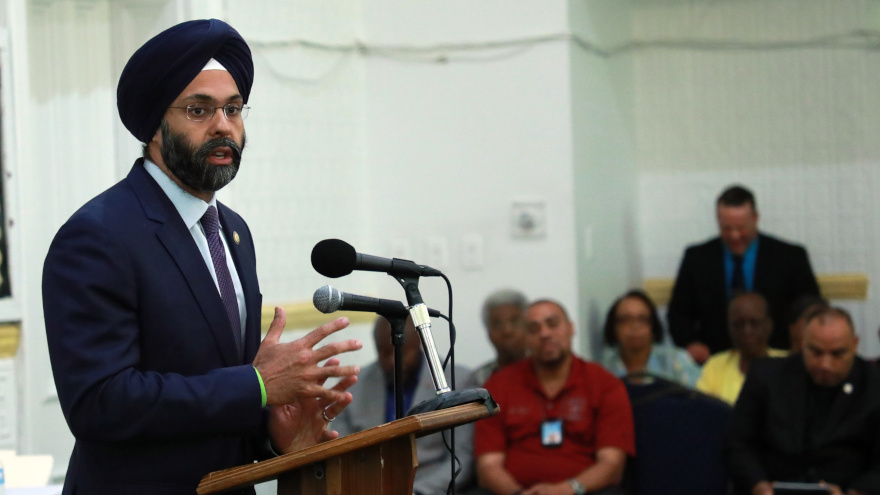Secure Collateral Management already announced the skip-tracing and collateral recovery provider was moving into a new headquarters.
And then Monday, Secure Collateral Management and MBSi Corp. — a member of the Automotive Intelligence Council and provider of repossession assignment software and vendor compliance solutions — announced they are expanding their partnership.
Secure Collateral Management will begin using MBSi’s compliance management system, Contract Comply, to manage collateral recovery vendor vetting, which will be performed by RISC.
Secure Collateral Management recovery vendors will be vetted and monitored by RISC to maintain current copies of business licenses, insurance certificates, articles of incorporation, employee documents and state repossession licenses. All vendor information will be securely stored and tracked in MBSi’s compliance management system, Contract Comply.
“Compliance is at the forefront of our leading skip tracing and recovery services,” said Joseph Farley, executive vice president at Secure Collateral Management. “Selecting RISC’s in-depth vendor vetting process and MBSi’s compliance management system allows us to securely and confidently maintain vendor documents while focusing on locating customers for our lender clients.”
MBSi president Cort DeHart added, “Secure Collateral Management is an outstanding provider and we are proud they are expanding their partnership with us to include vendor compliance management.”
DeHart is also among the executive set to appear during Used Car Week 2018, which begins on Nov. 12 in Scottsdale, Ariz. Complete details can be found at www.usedcarweek.biz.
Lisa Scott took charge of PAR North America (PAR) last August with a specific objective near the top of her agenda as she began to oversee this segment of KAR Auction Services.
“One of my goals was to enhance the customer experience by creating the leading compliance platform in the recovery industry,” Scott told SubPrime Auto Finance News via email.
Well, now the industry can begin its evaluation of the robustness of PAR’s compliance endeavors. On Wednesday, the company launched its new web-based, self-service portal with real-time access to PAR’s compliance data and the compliance data of more than 600 vehicle recovery vendors across the U.S.
PAR — a provider of vehicle transition services in the U.S. with coast-to-coast solutions for recovery management, skip-tracing, remarketing and title services — indicated that Platinum Compliance offers this transparency tool in one easy-to-use dashboard.
“Our customers are facing increased scrutiny and heightened regulatory requirements,” Scott said in a news release. “Platinum Compliance gives our customers the peace of mind that only qualified, experienced and trained recovery vendors are working their assignments.
“Never has our industry had a more comprehensive real-time database of due diligence and compliance documentation — including current state-level recovery vendor requirements across all 50 states,” she continued.
In the email exchange with SubPrime Auto Finance News, Scott explained that vice president of compliance and operations Jessie Herdrich has been key on this project, working closely with the company leadership team to develop PAR Platinum Compliance. Herdrich is among the executives set to appear during Used Car Week 2018, which begins on Nov. 12 in Scottsdale, Ariz.
“We know that our customers are feeling the pressure as the industry faces increased regulatory scrutiny. We have always had a robust vendor management program but didn’t have a streamlined database or a real time point of access for our clients,” Scott said.
“Our biggest vendor management challenge is gathering and organizing information for our network of more than 600 recovery vendors,” she continued. “In the Platinum Compliance system, we have supporting documentation for all recovery vendors — a comprehensive database of state-level requirements, and PAR and vendor due diligence, including insurance certificates, relevant licensing, operational and enterprise policies and even employee-level compliance.
“This is all information our clients review during routine audits and it is now accessible to our clients at any time via a secure login,” Scott added.
Through the Platinum Compliance portal, customers can access due diligence and supporting compliance documentation for all recovery vendors. The comprehensive real-time database includes state-level recovery vendor requirements, and all PAR and vendor due diligence including insurance certificates, relevant licensing, operational and enterprise policies.
Scott reiterated that streamlining what was once an onerous process for collecting, reviewing and storing information, audits are now faster and more efficient.
The all-inclusive dashboard automates reminders and facilitates fast and easy uploading of updated compliance documentation allowing recovery vendors to remain in good standing. Only recovery vendors who are Platinum Compliant with PAR’s compliance checklist may receive recovery assignments.
Scott explained how critical that stipulation is to clients.
“We have earned our customers trust and want to keep it. So when we list recovery vendors as being PAR Platinum Compliant, our customers can trust that they are up-to-date on all required documentation and in good standing,” Scott said.
“That’s why we have developed an efficient, easy to use portal that ensures the compliance of recovery vendors. A comprehensive dashboard empowers every vendor manager to check the status on our checklist of due diligence items. The new system also automates reminders and facilitates fast and easy uploading of updated compliance documentation — making it simpler than ever for agents to remain in good standing,” Scott went on to say.
Scott closed the email exchange by reinforcing a message to finance companies about PAR’s commitment to excellence via this latest endeavor.
“Customers now have direct, self-service access to a single, user-friendly system housing all due diligence and compliance documentation for both PAR and our third-party recovery vendors,” Scott said.
“As a result, customer audits will be faster and more efficient. Customers will also be able to quickly reference state-level statutes and regulatory requirements,” she concluded.
Federal prosecutors recently landed a conviction involving a trio operating an elaborate auto-finance fraud arrangement in North Carolina.
Andrew Murray, U.S. Attorney for the Western District of North Carolina, said a federal jury in Charlotte returned a guilty verdict against Kimberlie Flemings of Mt. Holly, N.C., for her role in a $1 million fake auto-finance scheme.
The jury found Flemings guilty of conspiracy to commit wire and bank fraud; wire fraud affecting financial institutions; and multiple counts of financial institution fraud. U.S. District Judge Robert Conrad presided over the trial.
Officials said two of Flemings’ co-conspirators, Stanley Reginald Barron, 38 of Cornelius, N.C., and Brian Lyles, 46, formerly of Jersey City, N.J., previously pleaded guilty to conspiracy to commit wire and bank fraud. Lyles also pleaded guilty to bank fraud. They are currently awaiting sentencings.
According to evidence presented at trial, witness testimony and filed court documents, from at least 2012 to 2015, Flemings, Barron, Lyles and others submitted dozens of fraudulent auto finance and personal loan applications in their names, and the names of at least 30 other individuals they had recruited to participate in the scheme, to at least 19 banks and credit unions. As a result of the fraudulent applications, the co-conspirators obtained more than $1 million in fraudulent loan proceeds.
To facilitate the fraud, officials said the co-conspirators created fake car dealerships that purported to be the sellers of vehicles purchased with the fraudulent contracts. The co-conspirators also set up bank accounts, websites and addresses associated with these fake dealerships, and created fictitious purchase orders which were submitted to the financial institutions as part of the loan application.
Officials continued that Flemings, Barron and Lyles deposited the fraudulently-obtained checks from the financial institutions into accounts Barron controlled. After keeping a portion of the fraudulent loan proceeds, Barron distributed the rest to Flemings, Lyles and others.
According to court records, the majority of the loans defaulted, causing losses to the impacted financial institutions. To cover up the fraud, Barron and others made false statements to the defrauded banks and credit unions that attempted to collect on the debts, including that borrowers had been the victims of identity theft and that they had not authorized the loans.
Flemings is currently released on bond, according to officials. Each of the charges the defendant was convicted of carries a maximum sentence of 30 years in prison and a $1-million fine.
Officials added a sentencing date has not been set.
In making the announcement, Murray thanked the Postal Inspection Service (USPIS) and the Office of Inspector General of the Federal Housing Finance Agency for their investigation of the case, and recognized the North Carolina Division of Motor Vehicles for its assistance.
Allied Solutions, one of the presenting sponsors of Used Car Week 2018, now has a closer relationship with Location Services, which also just acquired commercial consignor Remarketing of America to enhance its risk management and other offerings to auto-finance clients.
Allied Solutions, one of the largest providers of insurance, lending and marketing products to financial institutions, has entered into a strategic partnership and distribution agreement with Location Services that became effective on Monday.
“We are excited to partner with Location Services as they bring a true ‘best in class’ multi market solution to this area of our business,” Allied Solutions chief executive officer Pete Hilger said.
“Their business model will allow us to offer our clients a direct end-to-end loss mitigation experience that just wasn’t possible before, creating a new level of efficiency for Allied and our clients,” Hilger continued.
To ensure a smooth transition for clients, Allied Solutions indicated that it has appointed a dedicated product support team and is expecting minimal disruption.
“We are honored to be selected by Allied Solutions as their exclusive end-to-end loss mitigation servicing partner,” Location Services CEO Lee McCarty said.
“Allied Solutions is renowned for meeting the needs of their clients, which fits perfectly with our performance and compliance based culture, our focus on analytics and process rigor, and our commitment to deliver the most efficient, effective and compliant services in the loss mitigation industry,” McCarty continued.
Allied Solutions also will have a significant presence during Used Car Week 2018, which begins on Nov. 12 at the Westin Keirland Resort and Spa in Scottdale, Ariz. Anne Holtzman of Allied Solutions will be joined by Jeremiah Wheeler of Digital Recognition Network for multiple discussions and presentations where they will explore the risk strategies they use to monitor contracts for insurance coverage, prevent contracts from going to recovery and build behavior models that predict skip propensity earlier to better predict risk.
Early bird registration discounts are available through Oct. 16. Complete details are available at www.usedcarweek.biz.
More news from Location Services
Along with the partnership with Allied Solutions, Location Services also announced this week the acquisition of MOXKOR, formerly known as Remarketing of America.
McCarty emphasized that the offering now provided by Locations Services can allow credit unions, banks and other financial institutions the ability to have one company manage the entire loss mitigation process including skip-locate, recovery, account administration, license plate digital technology, transportation and remarketing.
“During my time in the banking industry, there was a clear and distinct need for a single service provider to serve as a one-stop-solution that could service financial institutions in a way that reduced compliance risk, while at the same time increasing recovery and liquidation rates,” McCarty said.
“Our team will be positioned with our suite of loss mitigation service offerings to ensure customers in New York are receiving the same efficient, effective and compliant services as those customers in California and Hawaii,” he continued.
Location Services strategically built its team around banking industry leaders; several which came aboard earlier this year.
Shawn White, former director of collections at Exeter Finance, serves as chief operating officer, while Eric Gerdes, former executive director of compliance at Ally Financial, serves as chief risk and compliance officer.
Location Services’ leadership team also includes chief technology officer Henry Kuo and chief digital and work force optimization officer Jeremiah Worthington.
“We are proud that Location Services leadership and management team members have extensive banking industry experience and deep knowledge of state and federal regulatory requirements. This uniquely positions and differentiates Location Services in this highly regulated outsource industry,” McCarty said.
A member of the SubPrime 175 is enhancing its resources to maintain compliance with state and federal guidelines to better serve its auto-finance clients.
Victory Recovery Services, a provider of skip-tracing and national repossession management for creditors with collateral secured contracts, is taking another step in enhancing its risk assessment and due diligence efforts by partnering with VendorInsight.
“We have worked hard at VRS to provide national coverage and seamless recovery effort for our vendor network,” Victory Recovery Services founder and chief executive officer Mark Davis said. “We believe our due diligence is protected by the award-winning risk management platform, VendorInsight, to provide VRS a support system that will monitor, alert, and provide necessary metrics as it relates to our vendor network.
The partnership with VendorInsight will provide VRS a platform to ease the manpower burden required during and after the on-going vendor process, as well as give us a viable vendor research tool for evaluation and due diligence activities,” Davis continued.
“This move will confirm our commitment and confidence in our ability to deliver on our ‘No Risk, Just Results’ mission,” Davis went on to say. “Now with the secure and automated services of VendorInsight at our disposal, we couldn’t be more excited to reaffirm our promise to our clients and demonstrate VRS has a high-quality vendor relations team.”
For more details about the company, go to www.vrs-corp.com.
Here is some good news for auto finance companies involving ongoing concern about fraudulent paper ending up in their portfolios.
The operators of websites that sold fake documents used to facilitate identity theft and other frauds have agreed to permanently shut down their businesses as part of separate settlements with the Federal Trade Commission.
In separate cases filed by the FTC, the commission alleged that Katrina Moore, Steven Simmons and George Jiri Strnad II and their affiliated companies operated websites that sold customers a variety of fake financial and other documents — such as pay stubs, income tax forms and medical statements — that can be used to facilitate identity theft, tax fraud and other crimes.
“The sale of fake documents makes it easy for identity thieves and scammers to ply their trade,” said Andrew Smith, director of the FTC’s Bureau of Consumer Protection. “This action demonstrates the FTC’s determination to stop those who help people to commit identity theft and fraud.”
Identity theft was the second biggest category of consumer complaints reported to the FTC in 2017 — accounting for nearly 14 percent of all the consumer complaints made last year. Credit card fraud was the most common type of identity theft reported by consumers in 2017, followed by tax fraud.
The complaint against Moore and her business, Innovative Paycheck Solutions, alleges that she promoted the sale of a variety of financial documents on the website she operated, FakePayStubOnline.com. In addition to fake pay stubs, these documents included bank statements and profit-and-loss statements.
The site stated that the documents look authentic and sold for as little as $40 for a fake pay stub to more than $150 for fake tax returns. The site offered visitors the choice to customize their documents and to edit real bank statements, touting its “Custom Fake Pay Stub” and “Fake Pay Stubs Online, Quick, Easy, Accurate Pay Stubs.”
In its complaint against Simmons and his business, Integrated Flight Solutions, the FTC alleged he operated the NoveltyExcuses.com website from 2013 until October 2017, where for $19.95 he sold a variety of financial, identity and medical documents including pay stubs, auto insurance cards, utility and cable bills, doctor’s excuses and medical absence reports.
Like Moore’s website, Simmons’ NoveltyExcuses.com advertised that the documents the site offered were fake but looked authentic, saying it could provide “Quality Authentic Fake Forms! Proven to Work!”
From about 2014 through March of this year, the FTC said Strnad operated similar websites, including PayStubDirect.com and PaycheckStubOnline.com, that offered fake pay stubs, tax forms and bank statements, according to the FTC’s complaint. His iVerifyMe website sold job verification services in which he claimed to verify employment and income for customers, the FTC alleged.
As with the other defendants, the regulator indicated Strnad’s websites advertised that the documents were fake but looked “authentic.” At the same time, his iVerifyMe site advertised that it could verify the employment claims made using the fake pay stubs offered from his other websites, according to the FTC.
The FTC noted in all three complaints that fake financial and identification documents can be used to commit identity theft and loan fraud. Identity thieves can use fake documents to apply for credit cards along with stolen personal information. When an identity thief fails to pay the credit card bill, the victim’s credit suffers.
The sites offered by the defendants claimed that the fake documents were for “novelty” and “entertainment” purposes but failed to clearly and prominently mark such documents as being for such purposes and did not state on the documents themselves that they were fake, according to the complaints.
The agency alleged Moore, Simmons and Strnad violated the FTC Act’s prohibition against unfair practices.
As part of her proposed settlement with the FTC, Moore is permanently prohibited from advertising, marketing or selling any fake documents or services and providing any means to others to make misrepresentations about an individual’s identity, finances, residency, taxes or employment. She also has agreed to pay $169,000, all of which is suspended due to her inability to pay.
In his proposed settlement, Simmons agreed to similar conduct prohibitions and to pay $15,000, which also has been suspended due to his inability to pay. The full amount will become due if either defendant is later found to have misrepresented their finances. Strnad agreed to similar conduct restrictions in his proposed settlement and to pay $133,777.
The FTC voted 5-0 to approve the three complaints and stipulated final orders. The FTC filed the proposed order with Moore in the U.S. District Court for the Central District of California, while the proposed order with Simmons was filed in the U.S. District Court for the District of Oregon, Portland Division and the proposed order with Strnad was filed in the U.S. District Court for the Southern District of Texas, Houston Division.
While perhaps not to the scale of some other data breaches, a dealership management software (DMS) provider recently reached a settlement with New Jersey regulators whose investigation found compromised systems.
New Jersey attorney general Gurbir Grewal and the state’s Division of Consumer Affairs announced a settlement with DMS developer Lightyear Dealer Technologies — makers of DealerBuilt that provides store functions such as F&I sales, fixed ops, accounting, parts and payroll.
Enforcement officials explained settlement resolves the division’s investigation into a cyber security lapse that allowed unauthorized public internet access to a company database containing personally identifiable information of customers and employees of more than 100 dealerships nationwide, including at least four dealerships in New Jersey.
Officials indicated the security gap was exposed in 2016 when a security researcher accessed unencrypted files containing names, addresses, Social Security Numbers, driver’s license numbers, bank account information and other data belonging to thousands of individuals, including at least 2,471 New Jersey residents.
To resolve the division’s investigation into the breach, Lightyear Dealer Technologies agreed to enact a variety of data security reforms designed to prevent similar breaches in the future.
“Through this settlement, New Jersey is holding DealerBuilt accountable for a security lapse that exposed sensitive personal data belonging to thousands of our residents and untold numbers of consumers nationwide,” Grewal said.
“As a result of our negotiations, DealerBuilt has agreed to implement comprehensive cyber-security protocols to better protect consumers in all states against the threat of identity theft or other cybercrimes,” Grewal continued.
The reforms include:
—The creation of an information security program to be implemented and maintained by a chief security officer with appropriate background and experience in information security.
—The maintenance and implementation of encryption protocols for personal information stored on laptops or other portable devices or transmitted wirelessly; the maintenance and implementation of policies that clearly define which users have authorization to access its computer network; and
—The maintenance of enforcement mechanisms to approve or disapprove access requests based on those policies; and the maintenance of data security assessment tools, including vulnerability scans.
DealerBuilt also agreed to an $80,784 settlement amount.
“Data breaches like this are a sobering reminder of what can happen when companies fail to adequately protect the sensitive data they collect and store electronically,” said Paul Rodriguez, acting director of the New Jersey Division of Consumer Affairs. “As this settlement demonstrates, New Jersey stands ready to vigorously enforce the laws that protect consumers from the risk of having their most personal information exposed online.”
Through its investigation, the division found that in April 2015, a misconfigured file synchronizing program allowed unauthorized public internet access to a database containing unencrypted files backed up by approximately130 of DealerBuilt’s client dealerships nationwide, including at least four in New Jersey.
Sometime between October 29 and November 3, 2016, a security researcher was able to access the DealerBuilt database and downloaded files from five of those dealerships, including one in New Jersey: Winner Ford in Cherry Hill.
Upon learning of the vulnerability on DealerBuilt’s systems, the security researcher published an online article drawing attention to the fact that the files were backed up and stored without adequate security protocols in place.
In the wake of the breach, the division began an investigation to ascertain whether DealerBuilt’s conduct was in violation of the New Jersey Consumer Fraud Act (CFA) and/or the New Jersey Identity Theft Prevention Act (ITPA).
In a consent order resolving the investigation, DealerBuilt agreed to an $80,784 settlement amount comprised of $49,420 in civil penalties and $31,364 in reimbursement of the division’s attorneys’ fees, investigative costs and expert fees.
Under the terms of the order, $20,000 in civil penalties will be suspended and automatically vacated at the expiration of two years provided DealerBuilt complies with the terms of the consent order and does not engage in any acts or practices in violation of the CFA and/or the ITPA.
Attempts to reach DealerBuilt for a comment about the settlement were unsuccessful.
Investigator Christopher Spaldo and former investigator Brian Morgenstern of the Division of Consumer Affairs’ Cyber Fraud Unit conducted this investigation.
Deputy attorney general Zachary Klein and former deputy attorney general Russell Smith Jr. within the Affirmative Civil Enforcement Practice Group in the Division of Law represented the division in this matter.
The Consumer Financial Protection Bureau (CFPB) has issued its final rule adopting changes to Regulation P, which governs the requirements for financial institutions to issue privacy notices to its customers.
The final rule implements new timing requirements for sending annual privacy notices pertaining to financial institutions that no longer qualify for the exception and eliminates the “alternative delivery” option for annual privacy notices. The most significant impact of the final rule is the creation of an exception which permits financial institutions to avoid sending annual privacy notices to its customers under certain circumstances.
The final rule will have the biggest impact on financial institutions who do not share nonpublic personal information with unaffiliated third parties. However, with recent amendments to the Gramm Leach Bliley Act (GLBA) and Regulation P regarding privacy notices, all financial institutions should evaluate their current privacy policies and procedures.
The final rule will become effective on Monday.
Creation of annual privacy notice exception
The changes to Regulation P are intended to align the rule with amendments made by Congress to the Gramm Leach Bliley Act (GLBA) in 2015. Under Regulation P, financial institutions are required to send a privacy notice to all customers every 12 months without exception. This includes information such as whether the financial institution shares consumer information with nonaffiliated third parties, how the financial institution protects nonpublic personal information obtained from customers, and whether the customer has the right to opt-out of the sharing of that information.
The final rule now creates an exception to this rule and exempts financial institutions from this requirement if it satisfies two conditions:
1. The financial institution does not share nonpublic personal information with nonaffiliated third parties.
2. The financial institution must not have changed its “policies and procedures with regard to disclosing nonpublic personal information” from the policies and procedures outlined in the most recent privacy notice sent to the consumer.
This exception only applies to annual privacy notices and does not impact current requirements regarding initial privacy notices or amended privacy notices.
Amendment to timing requirements
In addition to creating the annual privacy notice exception, the final rule also adopted new timing requirements for issuing annual privacy notices in the event that a financial institution has made changes to its privacy policies and procedures and no longer qualifies for the exception. The timing requirements are rather nuanced but essentially require a financial institution to issue an annual privacy notice either:
1. Before implementing the changes in the policy or practice which trigger the obligation to send a revised privacy notice
2. Within 100 days after adopting a policy or practice that eliminates the financial institution’s notice exception but the changes did not trigger the obligation to send a revised privacy notice.
Removal of “alternative delivery” method
Finally, as part of its changes to Regulation P, the CFPB eliminated the “alternative delivery” method for annual privacy notices.
Under the “alternative delivery” method, financial institutions were permitted to satisfy the annual privacy notice requirement in certain circumstances by posting a copy of the annual notice on its website. However, the CFPB rationalized that many of the requirements permitting a financial institution to use the “alternative delivery” method were the same as the requirements for a financial institution to qualify for the new annual privacy notice exception and, therefore, the method was now irrelevant.
As regulators continue to amend privacy notice requirements, it is imperative that financial institutions monitor their privacy practices to remain in compliance.
Alexander Koskey, an associate in Baker Donelson’s Atlanta office, represents individuals, businesses and financial institutions on a wide range of regulatory and compliance issues, real estate and commercial matters. He can be reached at [email protected].
The Consumer Financial Protection Bureau concentrated the auto-finance portion of its latest supervisory highlights on two of the most complicated matters when someone needs credit to acquire a vehicle — repossession and the application of insurance proceeds.
Before deploying a repossession agent to find and take back a vehicle, the CFPB acknowledged that many finance companies provide options to consumers in an effort to avoid repossession when a contract is delinquent or in default. The bureau also recognized in the summertime update that finance companies may offer formal extension agreements that allow consumer to forbear payments for a certain period of time or may cancel a repossession order once a consumer makes a payment.
But then, problems came to light, at least according to the CFPB’s investigations.
“One or more recent examinations found that servicers repossessed vehicles after the repossession was supposed to be cancelled. In these instances, the servicers incorrectly coded the account as remaining delinquent, or customer service representatives did not timely cancel the repossession order after the consumer’s agreement with the servicers to avoid repossession. The examinations identified this as an unfair practice,” bureau officials said in the supervisory highlights.
"The practice of wrongfully repossessing vehicles causes substantial injury, because it deprives borrowers of the use of their vehicles and potentially leads to additional associated harm, such as lost wages and adverse credit reporting,” officials continued.
“Such injury is not reasonably avoidable when consumers take action they believed would halt the repossession, and there is no additional action the borrower can take to prevent it,” the CFPB went on to say.
The bureau made one more point about the ramifications of errors happening during the repossession process, stating a financial injury is not outweighed by countervailing benefits to the consumer or to competition.
“No benefits to competition are apparent from erroneous repossessions. And the expense to better monitor repossession activity is unlikely to be substantial enough to affect institutional operations or pricing,” the CFPB said.
In response to the examination findings, the bureau indicated finance companies are stopping the practice, reviewing the accounts of consumers affected by a wrongful repossession and removing or remediating all repossession-related fees.
Insurance issues
Before delving into the repossession world, the CFPB recapped what’s happened when it’s investigated finance companies in connection with insurance.
The bureau shared in the supervisory highlights that one or more examinations observed instances in which notes required that insurance proceeds from a total-vehicle loss be applied as a one-time payment to the contract with any remaining balance to be collected according to the consumer’s regular billing schedule.
However, in some instances after consumers experienced a total-vehicle loss, the CFPB said finance companies sent billing statements showing that the insurance proceeds had been applied to the loan payments so that the loan was paid ahead and that the next payment on the remaining balance was due many months or years in the future.
“Servicers then treated consumers who failed to pay by the next month as late, and in some cases also reported the negative information to consumer reporting agencies,” bureau officials said.
“The examination found that servicers engaged in a deceptive practice by sending billing statements indicating that consumers did not need to make a payment until a future date when in fact the consumer needed to make a monthly payment,” they continued. The billing statements contained due dates inconsistent with the note and the servicer’s insurance payment application.
Such information would mislead reasonable consumers to think they did not need to make the next monthly payment. The misrepresentation is material because it likely affected consumers’ conduct with regard to auto loans,” the bureau went on to say.
Had the information been presented differently?
“Consumers would have been more likely to make a monthly payment if they knew that not doing so would result in a late fee, delinquency notice or adverse credit reporting,” the bureau said in its latest compliance update.
In response to examination findings, the CFPB state that finance companies are sending billing statements that accurately reflect the account status of the contract after applying insurance proceeds from a total-vehicle loss.
Regularly, alerts and messages arrive in my inbox containing some kind of enforcement action against a dealership or finance company. Oftentimes, my approach is just stick with the facts of the matter contained in a press release, share the developments through our channels here at Cherokee Media Group and carry on with the next task.
However, an alert from the Department of Justice arrived this week about how Hallman Chevrolet of Erie, Pa., entered into a deferred prosecution agreement involving more than $2.1 million in penalties and restitution for auto financing misdeeds. Immediately, childhood memories came flooding back of being a pre-pubescent boy and then eager-driving teenager at that store that was as close to growing up in the car business as I personally experienced.
Hallman Chevrolet is situated on State Street in this northwestern Pennsylvania city. The dealership is a test drive away from Lake Erie, meaning snowfall is often measured in feet. My father purchased a half dozen vehicles at the dealership, ranging from the family ride of the day, a 1978 Chevrolet Impala, to a 1991 Chevrolet Cavalier for one of my siblings to a 1983 Chevrolet Custom Deluxe half-ton pickup that eventually became my first vehicle.
See, my father’s first cousin was married to the gentleman who oversaw new-truck and used-car sales at Hallman Chevrolet. Being my dad’s shotgun rider “on trips to town,” there were many times we visited that dealership. If their conversation wasn’t of interest to me, I meandered the lot, peaking inside vehicles where cassette players were the high-end electronics of the day.
During the past 10 years as I’ve interacted with finance company executives, dealers and scores of service providers, it’s crossed my mind more than a few times that had we lived closer to Hallman Chevrolet, I would have tried to become the store’s next Lou Bertie. (That was the name of the gentleman who was related by marriage and turned metal at the dealership).
So that’s why the DOJ news release about the matter involving Hallman Chevrolet struck me significantly this week.
U.S. Attorney Scott Brady said Hallman Chevrolet entered into a deferred prosecution agreement and agreed to pay a monetary penalty of $1.4 million and more than $737,000.00 in restitution to various finance companies.
According to the agreement entered into between Brady and David Hallman (on behalf of Hallman Chevrolet and the Hallman Auto Group), from 2009 through 2015, with knowledge and acquiescence of David Hallman, Hallman Chevrolet engaged in a bank fraud scheme and a conspiracy to commit bank fraud, for which Hallman accepted responsibility.
That news release indicated the parties entered into a comprehensive deferred prosecution agreement to hold Hallman Chevrolet accountable for its actions and to compensate finance companies. The agreement requires the monitoring of Hallman Chevrolet’s conduct over the next four years and imposes other substantial obligations on the auto dealership and its owner.
“For over six years, Hallman Chevrolet defrauded financial institutions throughout the region by systematically falsifying loan documents in hundreds of transactions,” Brady said. “The perpetration of large-scale auto loan fraud schemes in western Pennsylvania must stop.
“The auto dealership industry is put on notice that substantial penalties await those who engage in such schemes,” he continued. “In addition to the combined fine and restitution exceeding $2 million, the policies, procedures, compliance and ethics program required by this agreement should serve as a template for responsible, ethical conduct within this industry.”
Knox McLaughlin Gornall & Sennet represented Hallman Chevrolet in the matter. The firm sent me a press release as well, emphasizing that Hallman Chevrolet worked to cooperate with the attorneys and agents from the FBI and U.S. Attorney’s office during the investigation that focused on the store’s used-vehicle department.
“Hallman Chevrolet takes full responsibility for the conduct described in that agreement. Since the investigation began, Hallman Chevrolet has taken significant steps to employ a compliance plan and philosophy that will prevent the sort of conduct that led to the investigation and agreement,” the store said in that release.
“Hallman Chevrolet has already installed a version of this plan and made material changes to its business operations,” the store continued. “Consistent with the agreement, Hallman Chevrolet plans on continuing that work into the future. Additionally, and pursuant to the agreement with the United States Attorney, Hallman Chevrolet is making full restitution to the financial institutions whom the United States Attorney identified as having suffered losses due to the conduct at issue.
“Hallman Chevrolet is committed to moving forward from this investigation in a way that treats compliance with all applicable laws and regulations as the primary and non-negotiable component of every transaction,” the store went on to say. From that place of compliance, Hallman Chevrolet will continue to provide exceptional value and service to its customers.
“Hallman Chevrolet has been a presence in downtown Erie for more than 44 years, and it plans on continuing its tradition of value and customer service into the next generation,” the store went on to say.
Since I left northwestern Pennsylvania more than 20 years ago, I haven’t followed in my father’s footsteps and made a vehicle purchase at Hallman Chevrolet. Despite the development, my memories of Hallman Chevrolet are still fond. It’s my hope the store has learned from its transgressions, and both franchised and independent dealerships shore up their compliance endeavors as not to sully the efforts of operations adhering to state and federal regulations.
Nick Zulovich is senior editor of SubPrime Auto Finance News and can be reached at [email protected].












